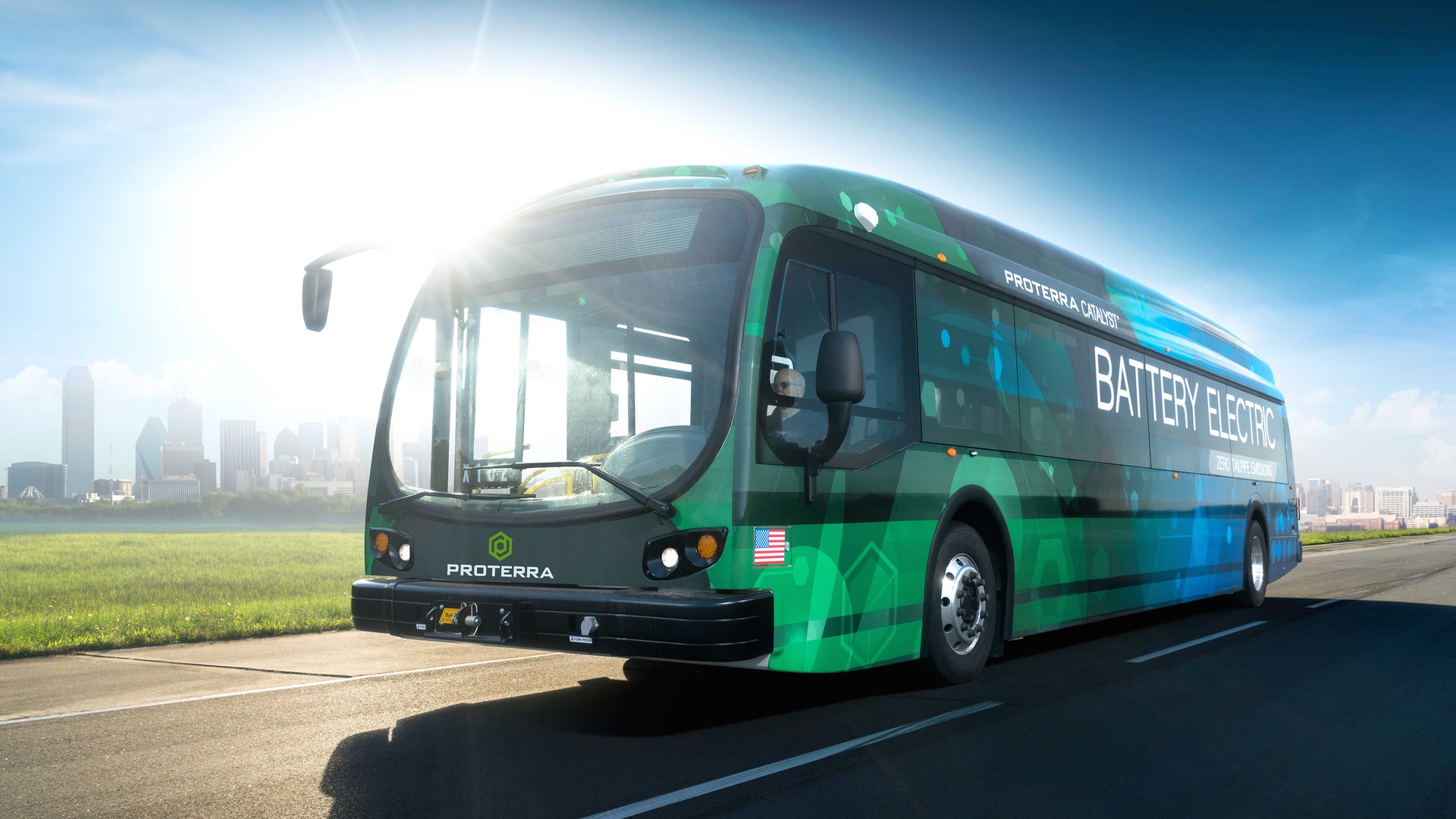

Los Angeles wants an all-electric bus fleet by 2030, and one of the city’s major transit agencies is kicking things off. The Los Angeles Department of Transportation just placed an order with Proterra for 25 electric buses, to be delivered in 2019.
“Our goal is a 100-percent electric bus fleet—it’s a quiet ride for our customers and cleaner air for our city,” Los Angeles Department of Transportation general manager Seleta Reynolds said in a statement. The agency currently has 359 buses in its fleet, so the initial order of 25 is just a start. Proterra is discussing followup orders with the Los Angeles Department of Transportation, chief commercial officer Matt Horton told The Drive. Other players in the growing electric commercial-vehicle market may get in on the action too.
Other Los Angeles-area transit agencies have also committed to making their bus fleets all-electric by 2030. The Los Angeles County Metropolitan Transportation Authority will convert its 2,200-bus fleet by that time. Foothill Transit, which serves the adjacent San Gabriel Valley and operates express buses into downtown L.A., will replace its current fleet of 361 buses with electric models.
The 25 buses going to the Los Angeles Department of Transportation are 35-foot-long Proterra Catalyst E2 models. Earlier this year, a 40-foot version of the Catalyst E2 drove over 1,000 miles on a single charge. While that bus was completely stock, it was driven on a closed course without any passengers on board. While transit operators won’t see that kind of range in the real world, Proterra believes its buses will be able to match their fossil-fuel counterparts.
“Our expectation is that the Los Angeles Department of Transportation will be able to use these buses interchangeably within its fleet,” Proterra’s Horton said. The electric buses will be able to operate anywhere existing buses can, and won’t be limited to specific routes, Horton said. Proterra will work to ensure that enough charging stations will be available for the buses as well.
Given California’s enthusiasm for electric vehicles, it’s not too surprising that one of the state’s largest cities wants electric buses. But Horton said interest isn’t limited to California. Orders have “skyrocketed,” he said, claiming those orders are coming from both “red states and blue states.” Transit operators are concerned about saving green, but they aren’t necessarily thinking about the environment.
“Everybody at a municipal-transit level is looking for ways to reduce their operating costs and save money,” Horton said. Electric buses offer lower operating and maintenance costs than diesel buses, and Proterra is working to bring down the purchase price of its buses (currently around $700,000 a pop) to equal the diesels, Horton said. Even if saving the environment is the goal, saving money may be why most cities ultimately buy electric buses.